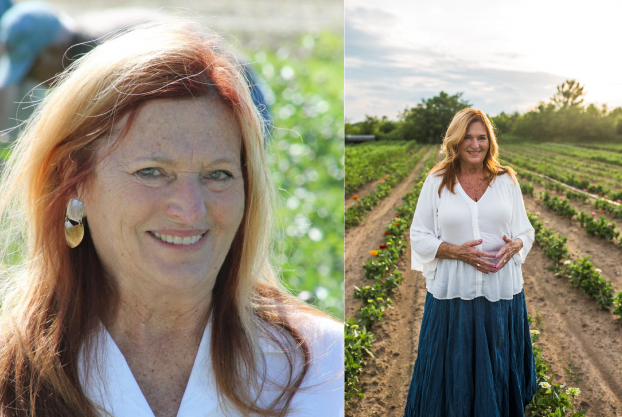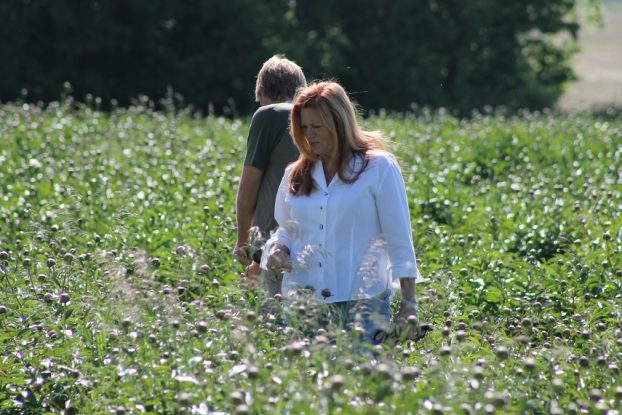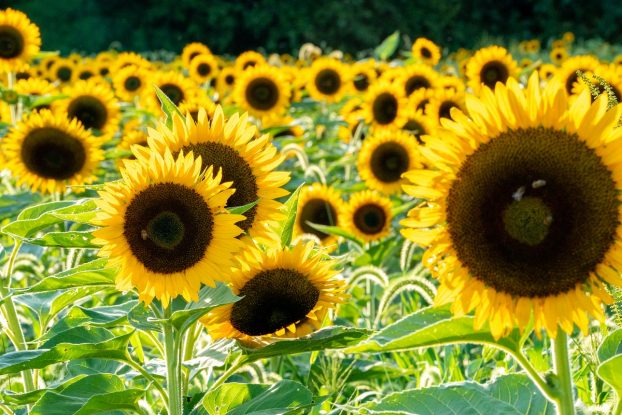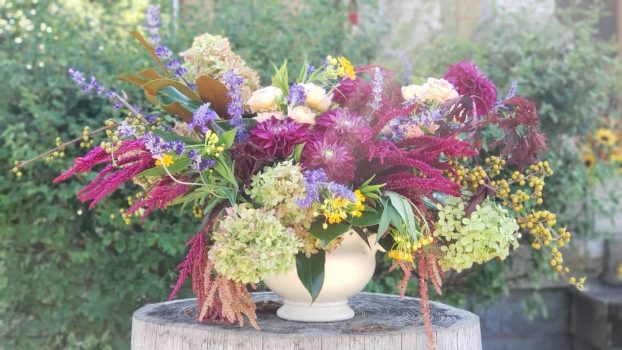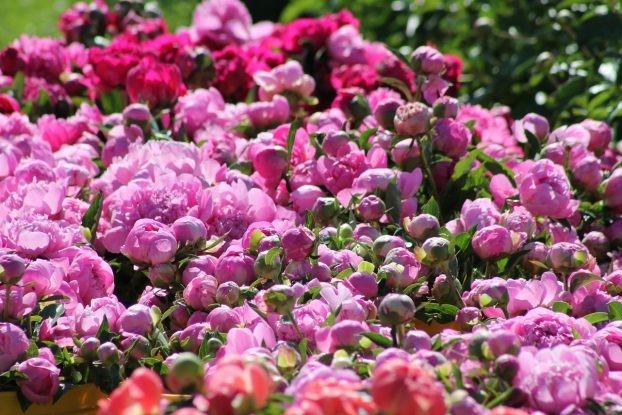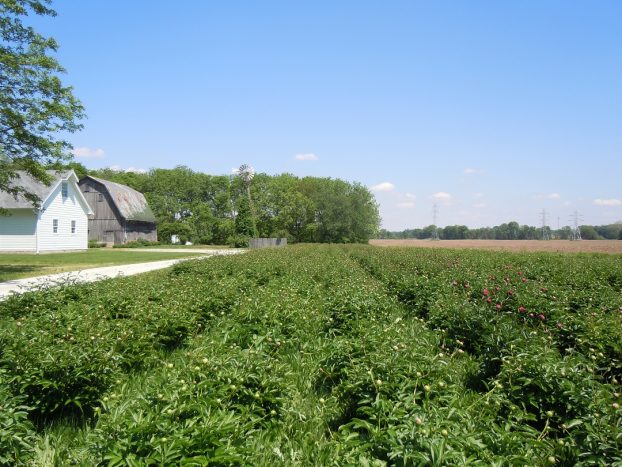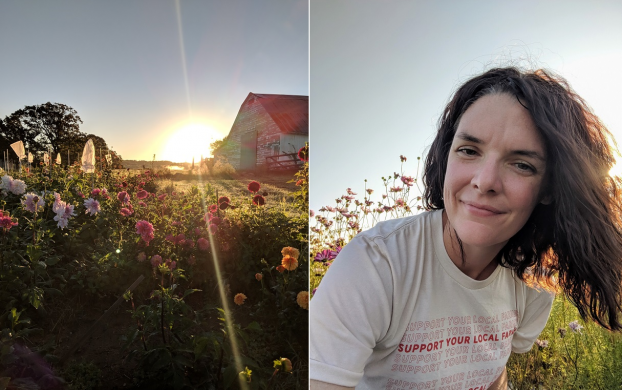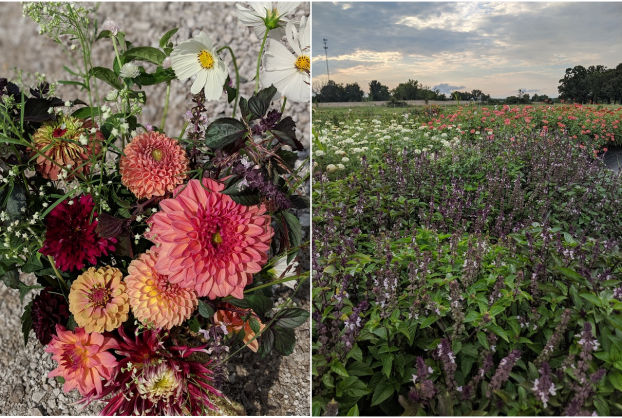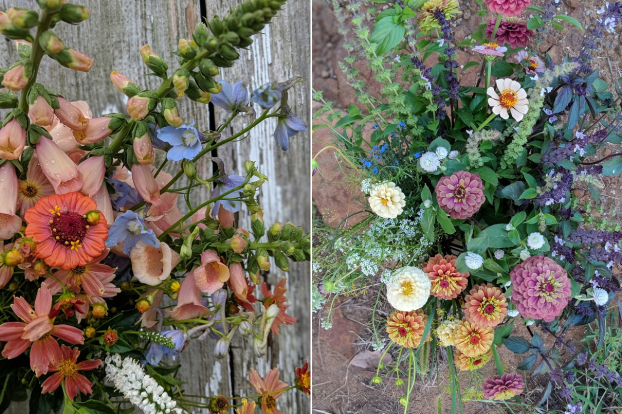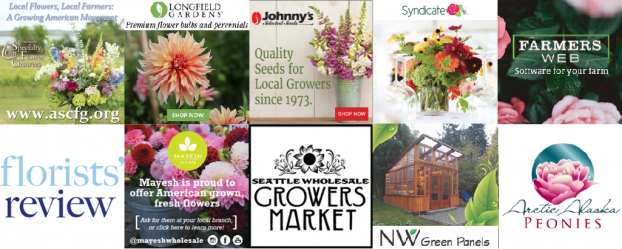Podcast: Play in new window | Download
Subscribe: Apple Podcasts | Podcast Index | RSS | More
Going from flower farmer to full-service retail florist and juggling both – is it possible? Hear from Tammy Osselaer, who started Little Petal Farm in 2019 and then in 2022, opened a retail full-service flower shop as an extension of her farm. Learn how she grows all of her flowers during the farming season AND produces floral designs for her community and beyond.
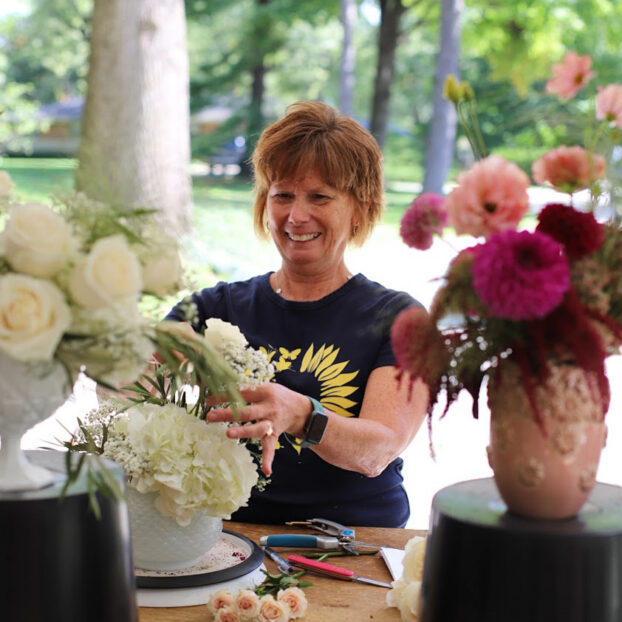
On this podcast, I love it when a listener contacts me with a suggestion for an episode that underscores something I’ve mentioned, such as an interesting observation or shift in the Slow Flowers Movement.
Today’s guest did just that. Tammy Osselaer is a loyal Slow Flowers Podcast listener and member who owns Little Petal Farm in Noblesville, Indiana. After an earlier episode when I commented about flower farmers opening companion retail stores, both on farm and as separate businesses, Tammy reached out to introduce herself.
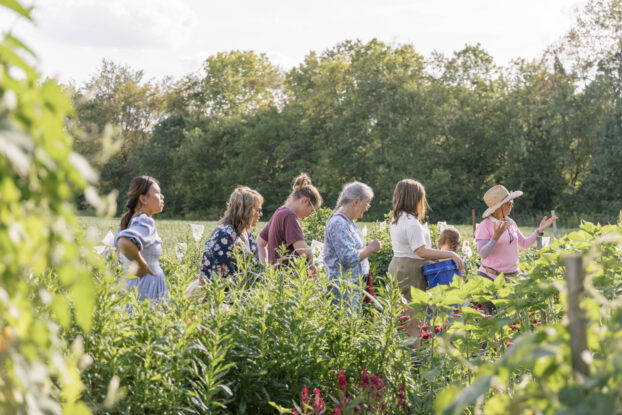
Little Petal Farm was established in 2019 as a specialty cut flower farm producing high-quality blooms & branches for floral designers, event planners, subscription holders, weddings, and all-around flower lovers.
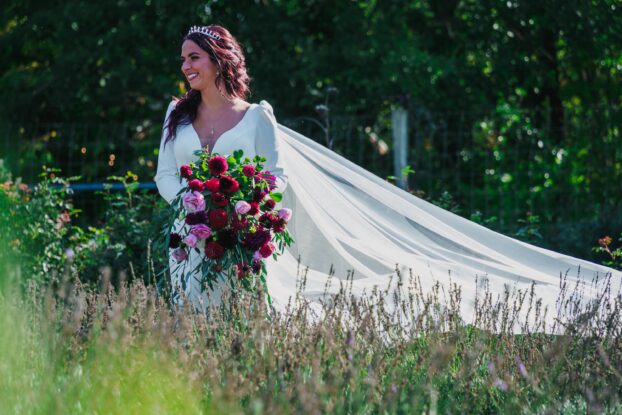
Its origins are rooted in Tammy’s personal interest in flower gardening and landscaping, a passion she’s had for more than 25 years. After designing, planting and nurturing her own gardens with perennials, flowering woodies and graceful ornamental grasses, she turned that passion into Little Petal Farm, first as a farm; then as a farm plus retail shop.
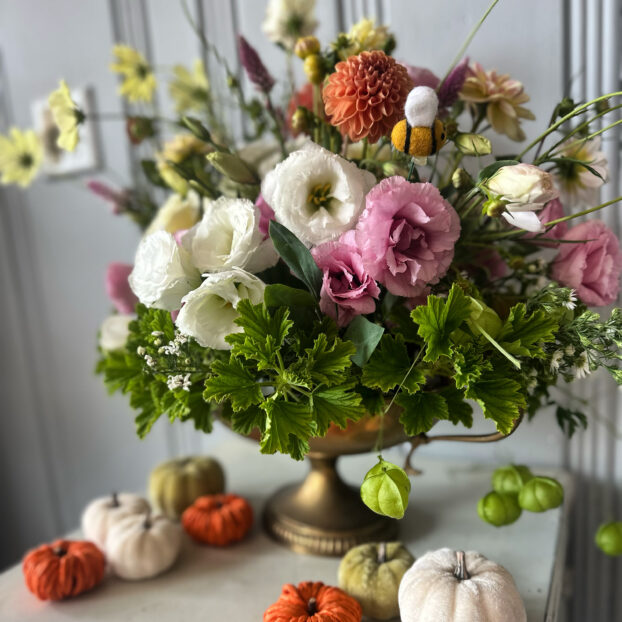
Let’s jump right in and learn about her path to flowers – and how she manages to run two sister businesses that are infusing Noblesville and the surrounding area with locally-grown botanicals.
Find and follow Little Petal Farm on Facebook and Instagram.
As mentioned, the Indiana Peony Festival is coming up this weekend, May 18th, so if you’re in the area, find Tammy and say hello!
This Week’s Good News
I want to share an important piece of news, a major milestone for the Slow Flowers Movement. Last week, we celebrated the 10th Anniversary of the launch of slowflowers.com!
One decade ago, on May 8th 2014, we launched slowflowers.com just before Mother’s Day, as a free, nationwide online directory with more than 200 listings of florists, shops, studios, and farms with local, seasonal, and sustainable flowers.
It all began with the book – Slow Flowers – which was published in the spring of 2013, quickly followed by the debut of the Slow Flowers Podcast. The Slow Flowers Movement was born with the book, the podcast, and slowflowers.com, and what an amazing decade we’ve experienced ever since! As part of my announcement last week, I shared these observations:
We have achieved so much in the Slow Flowers Community during the past decade – and we have YOU to thank. Your shared passion for promoting local, seasonal, and sustainable flowers has propelled Slow Flowers to become an international phrase, used in millions of hashtags around the world. #slowflowers has generated more than 200 million social media impressions in the past four years alone.
The term is much more recognizable and powerful that merely using “local flowers,” because SLOW instantaneously communicates a wider range of values than just geographic proximity.
We believe in the sustainable and ethical practices outlined in our Slow Flowers Manifesto, and our members are the embodiment of those values. We have grown to 750 members – flower farmers, floral designers, and farmer florists who align with our mission
Inspiring the floral industry and its consumers to embrace local, seasonal, and sustainable flowers.
Our goals are many, but I just want to highlight two that I know will resonate with you:
To change the flower sourcing practices of consumers and professionals through outreach and education that highlights the benefits of local, seasonal and domestic floriculture.
To build a movement that promotes cultivation and sales of local, seasonal and sustainable flowers, while nurturing authentic connections between consumers, farmers and florists.
To celebrate, I wanted to share a gift to our community. If you’ve always wanted to join Slow Flowers, we have a special 50%-off discount for you. Use the discount code HAPPY10 to join or renew for one year’s membership at half the regular price – this offer is good at all levels, from Standard and Premium to our special 3-year perennial membership. This promotion expires on June 7, 2024.
Join our May 17th Slow Flowers Member (Virtual) Meet-Up:
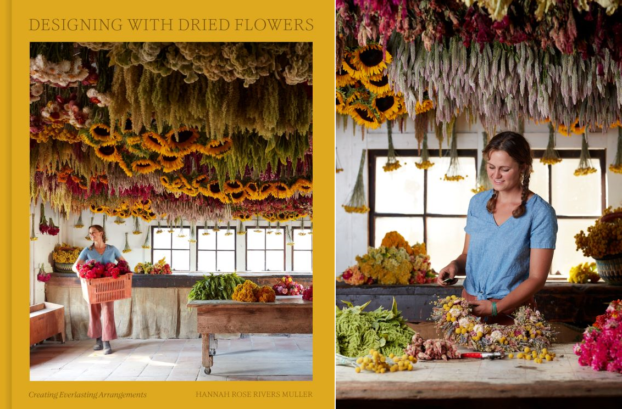
And don’t forget to preregister to join this month’s Slow Flowers Member Meet-Up, coming up on Friday, May 17th – scheduled to take place one week later than usual to accommodate for Mother’s Day. The session is devoted to Designing with Dried Flowers and our expert member is Hannah Rose Rivers Muller of The Wreath Room and Full Belly Farm. We’re so excited to feature Hannah as she talks about flower farming with her family in Northern California and developing her special approach to drying the flowers she grows. This will be a very special preview of Hannah’s brand-new book, out on June 4th – Designing with Dried Flowers, so bring your questions! We will have one copy of to give away to one lucky attendee. Pre-registration is required. I’ll see you on May 17th!
Thank you to our Sponsors
This show is brought to you by Slowflowers.com, the free, online directory to more than 750 florists, shops, and studios who design with local, seasonal and sustainable flowers and to the farms that grow those blooms. It’s the conscious choice for buying and sending flowers.
Thank you to Rooted Farmers. Rooted Farmers works exclusively with local growers to put the highest-quality specialty cut flowers in floral customers’ hands. When you partner with Rooted Farmers, you are investing in your community, and you can expect a commitment to excellence in return. Learn more at RootedFarmers.com.
Thank you to Mayesh Wholesale Florist. Family-owned since 1978, Mayesh is the premier wedding and event supplier in the U.S. and we’re thrilled to partner with Mayesh to promote local and domestic flowers, which they source from farms large and small around the U.S. Learn more at mayesh.com.
Thank you to Johnny’s Selected Seeds, an employee-owned company that provides our industry the best flower, herb and vegetable seeds — supplied to farms large and small and even backyard cutting gardens like mine. Find the full catalog of flower seeds and bulbs at johnnyseeds.com.
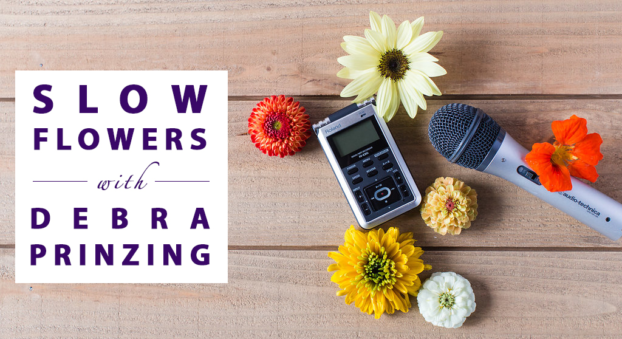
I’m so glad you joined us today! The Slow Flowers Podcast is a member-supported endeavor, downloaded more than one million times by listeners like you. Thank you for listening, commenting and sharing – it means so much. As our movement gains more supporters and more passionate participants who believe in the importance of our domestic cut flower industry, the momentum is contagious. I know you feel it, too. If you’re new to our weekly Show and our long-running Podcast, check out all of our resources at SlowFlowersSociety.com.
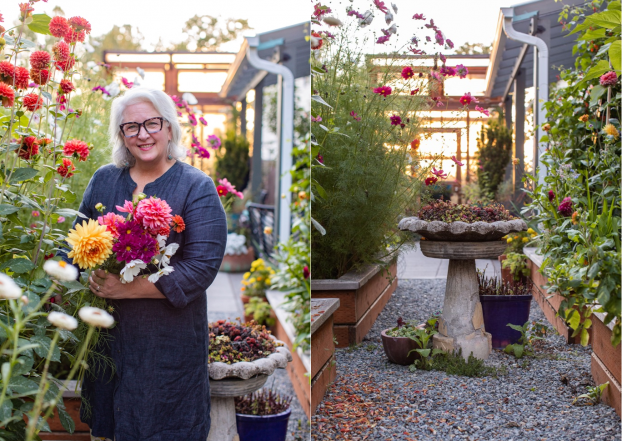
I’m Debra Prinzing, host and producer of the Slow Flowers Show & Podcast. The Slow Flowers Podcast is engineered and edited by Andrew Brenlan. The content and opinions expressed here are either mine alone or those of my guests alone, independent of any podcast sponsor or other person, company or organization. Next week, you’re invited to join me in putting more Slow Flowers on the table, one stem, one vase at a time. Thanks so much for joining us today and I’ll see you next week!
Music Credits:
Drone Pine; Gaena; Turning on the Lights; Nu Fornacis
by Blue Dot Sessions
http://www.sessions.blue
Lovely
by Tryad
http://tryad.bandcamp.com/album/instrumentals
http://creativecommons.org/licenses/by-sa/3.0/
In The Field
audionautix.com









